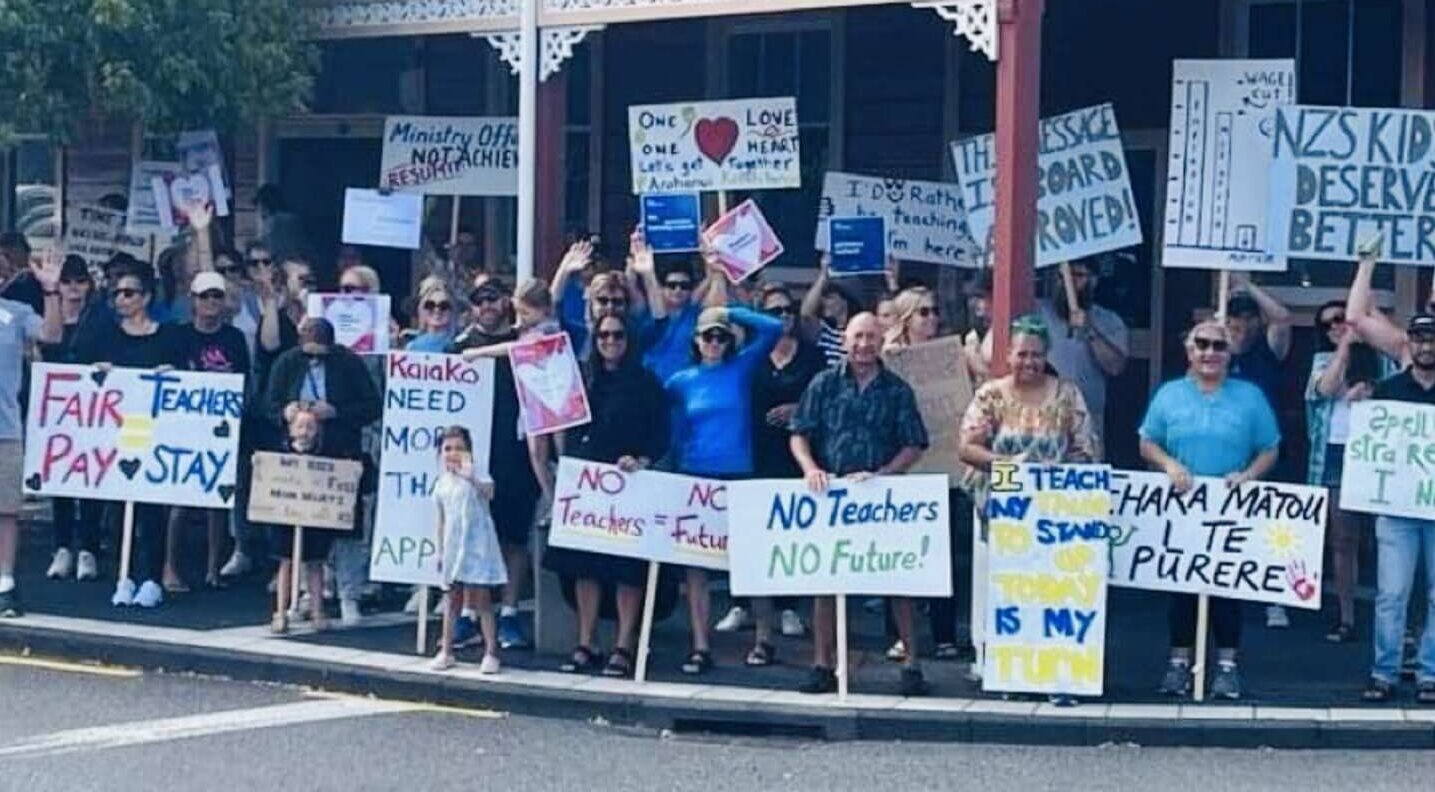No movement from the government to inflation-proof teachers’ pay was the “sticking point” for Waihī College to join teachers nationwide in industrial action on Wednesday last week.
The college has roughly 45 teachers and around 90 per cent of them are members of the Post Primary Teachers Association (PPTA).

The union voted to take further industrial action on March 29 following the nationwide teachers strike on March 16.
Waihī College PPTA staff representative Peter Roy told The Profile its union members left their classrooms empty to continue supporting their claims for better pay.
“It’s clear that the pay is the sticking point and it’s because there has been no movement from the government to even move towards inflation-proofing our pay by paying us the rate of inflation,” he said.
“Whether you’re a beginning teacher or top of the scale, getting an increase that’s the same as the rate of inflation means that we wouldn’t go backwards, the current offer from the MOE [Ministry of Education] would see us going backwards.”
The current offer includes a $4000 pay increase from December, 2022, and a $2000 increase from December this year.
Mr Roy said there was around a $40,000 difference between entry level teachers and teachers at the top of the pay scale, which takes seven or eight years to reach.
“If you’re at the top of the scale and you accepted the government offer… by July, 2023, our buying power would go down 9.38 per cent and by July, 2024, [it would decrease] 9.92 per cent… so in real terms it ends up as a pay cut,” he said.
“The government two weeks ago increased the pay of all the beneficiaries… by the amount of the CPI [consumers price index] or the rate of inflation, and said ‘we don’t want [beneficiaries] going backwards’.
“We put in our request to have our pay increased by the rate of inflation and we are being offered a whole lot less, so that’s why we’ve got industrial action.”
Mr Roy said the college planned more industrial action in the coming weeks if the government did not provide fairer salary options.
“We’re looking at rolling stoppages, which will mean that different parts of the country will be withdrawing labour over the week and there is potential that we won’t teach a particular year level on a different day,” he said.




